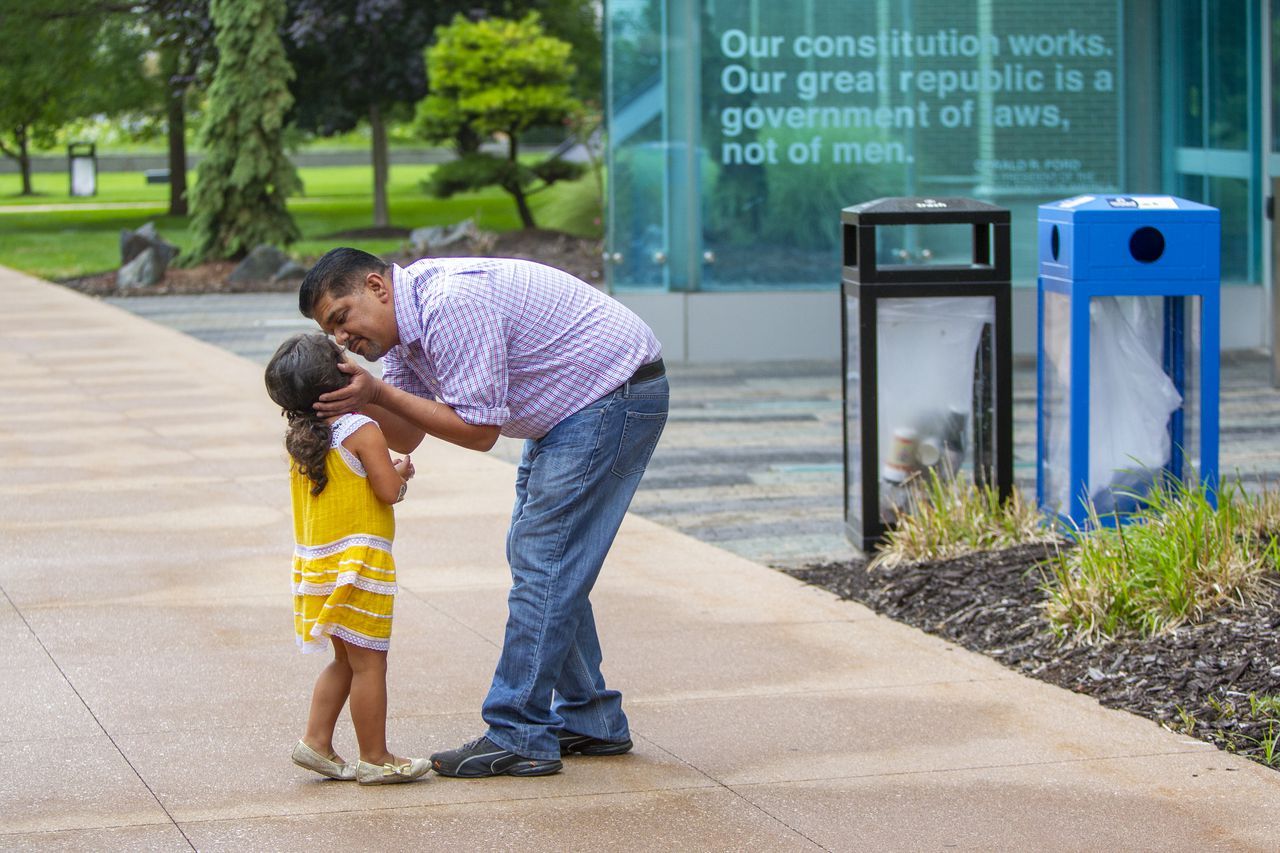Michigan's recreational marijuana sales are off to a sluggish start
The lobby of 1st Quality Medz, a new recreational marijuana store in River Rouge.
Seven weeks after legal recreational marijuana finally became available for sale in Michigan, Mark Dwyer still relies on the black market for pot.
He'd rather buy marijuana at a legal dispensary, but there are none that sell recreational pot within 15 minutes of his home in Detroit, the state's largest city.
"It's bullshit," Dwyer tells
Metro Times. "You'd think there would be someplace to get it by now. What's the point of legalizing it if you can't buy it?"
So far, only 36 recreational dispensaries have been approved by the state, compared to 206 medical ones.
The problem isn't with the state; it's the communities.
About 80% of the state's cities, towns, and townships have passed laws prohibiting recreational pot dispensaries from opening within their borders. In Wayne County, 33 communities, including Detroit, have imposed bans. As a result, there are only two approved dispensaries in Wayne County, the most populous county in the state, with 1.8 million residents. One of those dispensaries hasn't opened yet because of a statewide shortage of pot.
It took Michigan six weeks to top $10 million in recreational pot sales. By contrast, it took Illinois just five days.
Unlike Illinois, Michigan's recreational marijuana ballot initiative, approved by voters in November 2018, allowed communities to prevent pot businesses from opening within their borders before sales began on Dec. 1. No one expected so many communities to opt out, especially because of the projected new revenue from pot sales.
Attorney Matt Abel, executive director of Michigan NORML, says cities like Detroit are missing out on new revenue and the chance to fill vacant storefronts like Denver did when Colorado legalized recreational marijuana.
"We still have a city administration that is stuck in the past," Abel tells
Metro Times. "Mayor Duggan still hasn't said a word about marijuana while looking for a way to boost the economy in Detroit. In Denver there are no empty storefronts, and employment is up."
Dozens of entrepreneurs, including lifelong Detroiters, were planning to open recreational dispensaries until the city council at the last minute decided to impose a moratorium on pot businesses in early November.
Councilman James Tate led the effort, saying the city has yet to determine rules and guidelines for dispensaries. He assured prospective dispensary owners that the moratorium would likely be lifted by the end of January. But so far, the council has not taken up the issue, and Tate refuses to discuss it. His office didn't return calls from
Metro Times.
Abel points out that Detroit has 528 bars, 427 licensed liquor stores, and 585 beer and wine licenses.
Six dispensaries and two grow operations have sued Detroit and the state's Department of Licensing and Regulatory Affairs (LARA), arguing they were pre-approved for licenses before the city's moratorium went into effect on Nov. 22.
If city council doesn't lift the moratorium soon, Abel and others have pledged to organize a petition drive to let voters decide if the city should have dispensaries. State law allows voters to override recreational pot bans.
The Marijuana Regulatory Agency (MRA), which regulates the legal pot market, has issued 59 licenses for dispensaries, growers, processors, and testing labs across the state. The state is reviewing an additional 59 licenses for approval.
"When we get applications, we are moving them through in an efficient manner," MRA spokesman David Harns tells
Metro Times, adding that the state has not denied any licenses. Many of the recreational dispensaries that have opened so far are struggling to meet the immense demand for legal pot.
The statewide shortage has prevented one of Wayne County's two dispensaries from selling recreational marijuana. Herbology in River Rouge, which serves cannabis to medical patients, is waiting for the supply side to pick up before opening sales to recreational customers.
"When we open (for recreational customers), I'm sure we will have long lines, and I want to make sure everyone walks out with something," Tarek Jawad, owner of Herbology Cannabis Co., tells
Metro Times. "There is a lot of demand."
Jawad says he expects to begin selling recreational cannabis "in the next couple of weeks."
He's also licensed to deliver recreational marijuana, but he doesn't have the supply to begin the service.
1st Quality Medz in River Rouge opened last week and became the first Wayne County dispensary to begin selling recreational marijuana. Although the dispensary doesn't have a robust selection yet, it's able to sell two to three strains because the owner, Vetra Stephens, also runs a cultivation business that grows marijuana for recreational shops.
"The flower is very low, and there's a very strong demand," Stephens tells
Metro Times. "We only have a few strains."
But Stephens is optimistic about the future. Since opening, recreational customers have outnumbered medical cardholders.
"It's just a matter of time," Stephens says. "This is a movement that is going to evolve into something great."
State regulators are also optimistic. The MRA has approved 15 licenses to growers of recreational marijuana, and more are on the way. Once the cultivators complete their first grow cycle, more pot will be on hand.
"There is always going to be supply issues at the beginning of a new market," Harns says. "As growers are approved and the product is in the ground, the industry will work itself out."
Unlike medicinal cannabis, recreational marijuana has a 10% excise tax and a 6% sales tax. Excise tax revenue goes to local governments, schools, and roads.
Recreational marijuana sales are expected to top $150 million in sales and excise taxes in the 2020-21 fiscal budget, which begins in October, according to the Senate Fiscal Agency. By 2022-23, the agency projects the tax revenues will reach $262 million.

